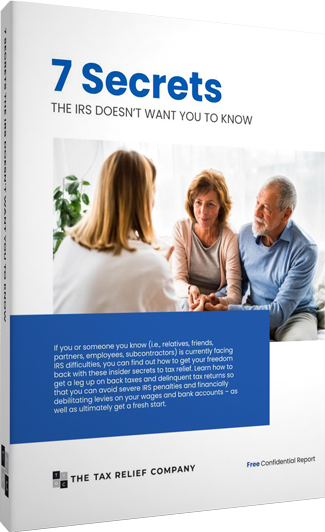Glad I am self-employed!
8/4/22- Weekly email
Greetings,

Glad I am self-employed. And that we have written policies and procedures!
It has been a week since I injured my right wrist and arm, and I am pleased to say that typing with two fingers on my left hand has become somewhat less burdensome. Hence, this weekly email.
Getting dressed for work is much more complicated and time-consuming for me than it is for Jeff. He can be out of the house in twenty minutes. Since the injury, it feels like it takes forever. 👗
I have the luxury of choosing where to work and how to dress because I am self-employed. 👩🏼💻
I am working (if you call my abbreviated hours, working, LOL) at home for several reasons.
- One, it is not easy and takes too much time to dress with one hand; think of all the garments women put on and the various accessories. They don’t get put on if it does not have an elastic waistband and the sleeves are not easily accessible.
- Two, makeup is a no-go. My mass of curls is just a mess of curls barely tamed in a clip Jeff puts in before he leaves for work. 💄
- Three, I cannot sit for long periods working at the keyboard, and I am not very productive. ⌨️
- And finally, I just discovered that Tylenol makes me sleepy. 🥱
Glad I am self-employed!
Think workout shorts, a tee, and no makeup. Get the picture now? Jeff needs to help cut my food and open jars and packages. 😳 Being a one-arm bandit is so not much fun. However, I appreciate Jeff’s help.
Running a business can be challenging, and we all can use help with issues that are not where our expertise lies.
For example, are your workers independent contractors (IC) or employees? We often hear from employers that the worker wants to be treated as an IC. Sometimes, the worker comes to us saying their “boss” wants them as ICs. There are many reasons why they feel this way, but, as we explain to our clients, “It is not a choice based on what they want; it is based on a specific set of criteria. If you get it wrong and the IRS conducts a “workers” classification audit, which is much more frequent than income tax audits (due to payroll taxes), it can be very costly.
Jeffrey Schneider, EA, CTRS, ACT-E, is an Enrolled Agent and is knowledgeable about worker classification issues. He has counseled and guided many business owners in determining whether the people providing services to the business are employees or independent contractors. The IRS has ruled that:
- An employee is generally considered anyone who performs services if the business can control what will be done and how it will be done. And the company has the right to control the details of how the worker’s services are performed.
- Independent contractors are typically folks in an independent trade, business, or profession in which they offer their services to the public.
Independent contractor vs. employee
Whether a worker is an independent contractor or an employee depends on the relationship between the worker and the business. Generally, there are three areas to consider.
- Behavioral control − Does the company control or have the right to control what the worker does and how the worker does the job?
- Financial control − Does the business direct or control the financial and business aspects of the worker’s job? Are the business aspects of the worker’s job controlled by the payer? Things like how the worker is paid, how expenses are reimbursed, who provides tools/supplies, etc.
- Relationship of the parties − Are there written contracts or employee benefits such as pension plans, insurance, and vacation pay? Will the relationship continue, and is the work performed a vital aspect of the business?
Misclassifying worker
Misclassifying workers as independent contractors adversely affects employees because the employer’s share of taxes is not paid, nor is the employee’s share not withheld. Therefore, if a business misclassifies an employee, the company can be held liable for employment taxes for that worker. Generally, an employer must withhold and pay income taxes, Social Security and Medicare taxes, and unemployment (federal and state) taxes.
Who is considered self-employed?
Generally, someone is self-employed if any of the following rules apply to them.
- They carry on a trade or business as a sole proprietor or an independent contractor.
- They are a member of a partnership that carries on a trade or business.
- They are otherwise in business for themselves, including a part-time business.
Self-employed individuals, including those who earn money from gig economy work, are generally required to file a tax return and make estimated quarterly tax payments. As the self-employed taxpayer is considered the employee and the employer, they also (with few exceptions) must pay self-employment tax which includes the social security and Medicare taxes, times two. Then, of course, there is always the income tax. These taxpayers may qualify for the home office deduction. But only if they use part of a home for business (and there are specific limitations for this.
How can we help you?
If you have questions, contact Jeffrey Schneider, EA, CTRS, ACT-E, at 772-337-1040 or by email at info@sfstaxacct.com.
Ali” Queen of the klutzes” Schneider
Direct of Business Development
P.S .- Sign up today to receive your newsletters and other communications in your email. Click here. https://bit.ly/3c8Gkc9.
P.S.S. – When ready to meet with us, call 877-355-8010 or book your appointment online https://go.oncehub.com/TheTaxReliefCompany.
#soleproprietor #employee #businessowner #independentcontractor #incometaxes #eploymenttaxes #jeffreyschneiderea #sfstaxacct


